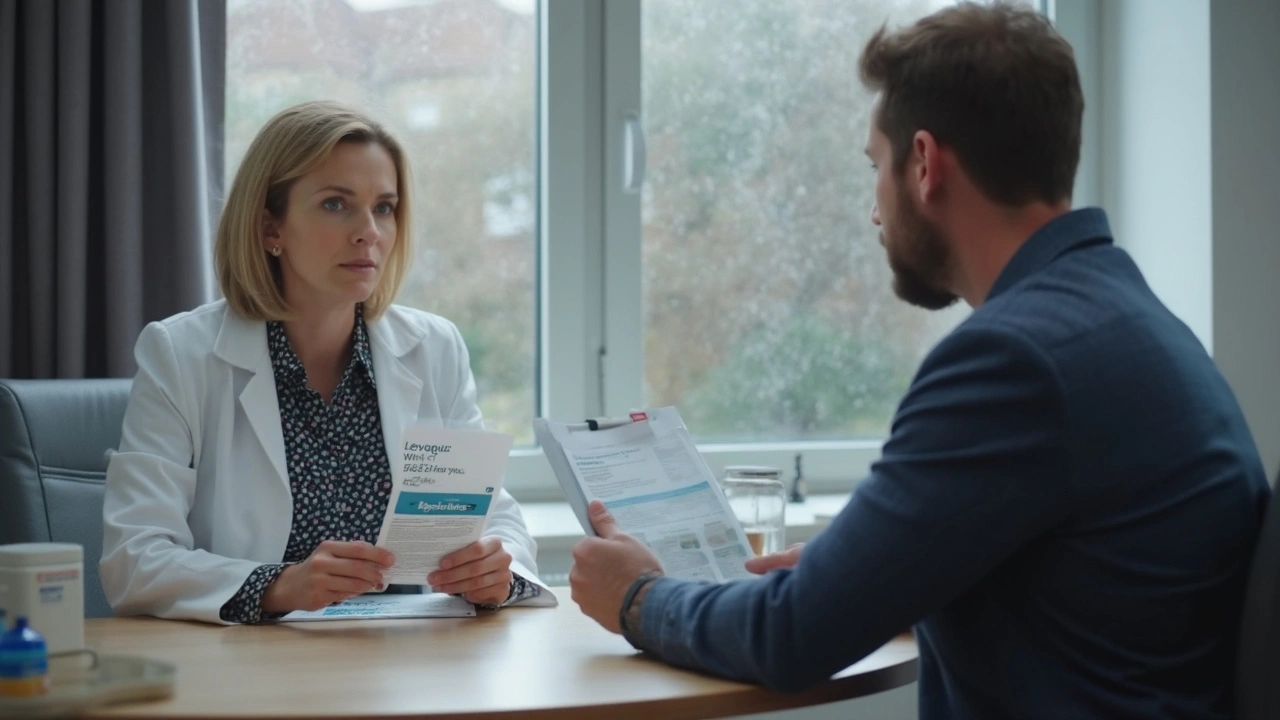Levaquin side effects can range from mild stomach upset to serious tendon injuries.
This guide explains common reactions, rare but important risks, who’s more likely to get them, and simple steps to stay safer while taking levofloxacin.
Levofloxacin is a fluoroquinolone antibiotic used for respiratory, urinary, and skin infections. Like any antibiotic, it kills bacteria but can affect other body systems. Knowing what to watch for helps you stop a problem early.
Common side effects are usually mild and often go away on their own.
Look out for nausea, diarrhea, headache, dizziness, and trouble sleeping. You may also get increased sensitivity to sunlight — use sunscreen and cover up. If diarrhea is severe or lasts more than a few days, tell your doctor because antibiotics can cause C. difficile infection.
Some side effects are uncommon but serious.
Tendonitis and tendon rupture, especially the Achilles tendon, are linked to levofloxacin. If you feel sudden tendon pain, swelling, or difficulty walking, stop the drug and get medical help. Peripheral neuropathy — numbness, tingling, or burning in hands or feet — can also happen and may become permanent if not addressed.
Levofloxacin can affect the brain. Some people experience confusion, hallucinations, mood changes, or seizures. Older adults and people with a history of seizures are more vulnerable. Heart rhythm changes like QT prolongation are possible; tell your doctor if you take heart meds or have a history of arrhythmia.
Who is at higher risk? People over 60, those on corticosteroids, patients with kidney problems, and anyone with a history of tendon disorders face greater danger. Pregnant women, breastfeeding mothers, and children are usually advised to avoid fluoroquinolones unless no safe alternative exists.
Drug interactions matter. Don’t take levofloxacin with antacids, calcium, iron, or sucralfate within a few hours — they reduce absorption. Combining it with certain heart drugs, other QT-prolonging agents, or strong blood thinners needs careful monitoring.
What should you do if side effects start? Stop strenuous activity at the first sign of tendon pain. Contact your healthcare provider immediately if you notice numbness, severe diarrhea, new mental symptoms, or signs of an allergic reaction like hives or breathing trouble. For less serious effects, ask your prescriber if dose adjustment or switching antibiotics is an option.
Simple tips to reduce risk: use levofloxacin only when necessary, follow the exact dose and duration, avoid sun exposure, stay hydrated, and tell your doctor about all medicines and health problems before starting treatment.
Talking to your healthcare provider about risks and alternatives is the best move if you’re worried. If you suspect a dangerous reaction, don’t wait — seek medical care right away.
For example, older adults with kidney disease may need a lower dose or longer interval. Do not stop early unless advised — symptoms may improve but infection can persist. If you take supplements or multivitamins, separate them by at least two hours. Keep a list of side effects to share with your clinician. Report severe side effects to your local health authority.





